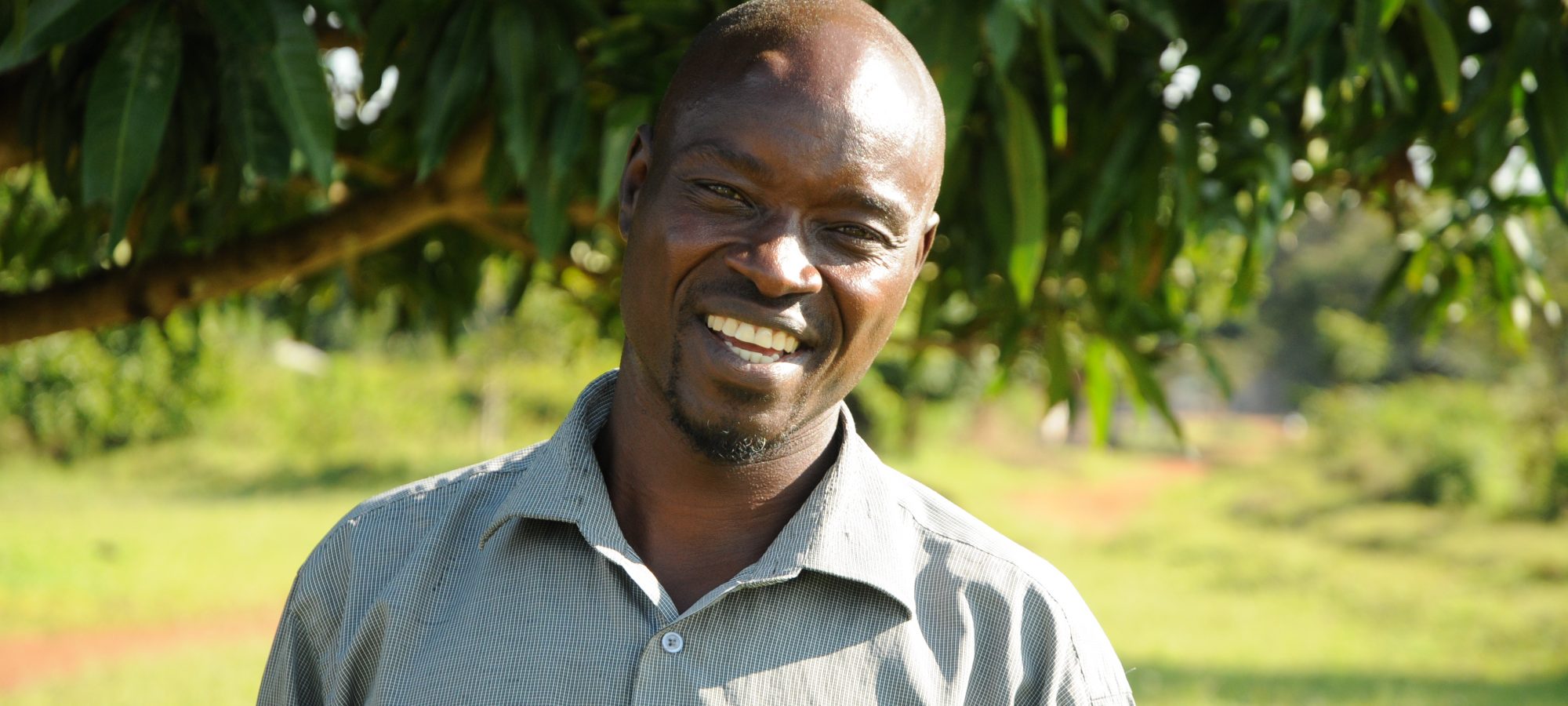Malaria Consortium has encouraged the creation of parish coordinator roles as part of the integrated community case management (iCCM) programme in support of the Ugandan Ministry of Health’s village health team structure and as part of the inSCALE project in Uganda, which seeks to increase coverage of community health services. Acting as the link between village health team members (VHTs) and supervisors, the role of the parish coordinator facilitates the reporting, supervision and mobilisation processes, often through the use of mobile technology.
Bulega Abdul was elected as the coordinator for his parish of Kibugubya in Hoima district, Western Uganda. “Three VHTs were nominated for each parish, from which we elected the coordinator” said Abdul. “I think they elected me because of the way I do my work. I was happy to be elected. I like it. I don’t mind that I don’t get paid.”
Abdul’s main responsibilities include collecting monthly reports from the 28 VHTs in his parish. “I make monthly home visits to all the VHTs to make sure they’re doing okay. We go through the register together; if I find any mistakes in how they give out drugs, or if there is a discrepancy in drug use and patients seen, we find and correct the mistakes together so that the next time, they can do it right.”
Traveling on his bicycle across the 18km wide parish, Abdul visits at least one VHT most days. “I call a day in advance to let them know I am coming. I used to have to spend my own money – maybe 5,000 shillings per month – making these calls. But now, I make them for free on the inSCALE CUG.” The CUG – or Closed User Group – is part of the inSCALE technology intervention where selected VHTs receive phones allowing free calls between VHTs and their supervisors, as well as functions for mobile submission of reports.
“The CUG really helps me,” Abdul said. “Before, when I was sacrificing my own money, it would be very tiresome. To limit the time on the phone I would call one VHT and ask him to notify his partner, and the calls would be so short – just a few words,” Abdul laughed, mimicking a clipped, abrupt conversation. “There would be misunderstandings and sometimes you would not find that person in the correct meeting place and would have to go back again later. And there would never be time for asking and answering questions on the phone. Now, it’s so much better. We can talk longer and the VHTs can call me if they have any problems with drugs or with their register and I can explain it properly. It really helps the VHTs in their performance.”
VHT performance is partly monitored through the weekly reports submitted on the inSCALE phones. “The reports are very good, because they are short,” Abdul said. “Before, with the written monthly reports, they were long and you could lose information or notes, so there would be more mistakes. The VHTs would often be reluctant to complete them because it would take so long. Now, with the weekly ones, they are quicker and more accurate. To me it is very important that we report exactly what is happening on the ground; it is very important when you deal with medicine that you can account for it.”
The phone software is designed to increase the VHTs level of motivation through regular messages of recognition and appreciation that, according to Abdul, are very important. “The reminders and the messages of thanks are very popular. It is really important to feel that you are working for someone, and to have regular contact with Malaria Consortium as our donors. I really appreciate that; I feel I am part of Malaria Consortium now because the phones have brought us closer.”
And, as Abdul noted, this benefit is mutual. “I think it also helps Malaria Consortium. If they need something urgent, they can just call the VHTs directly. I think it positively affects the success of the programme because they know what is going on at ground level. Surely, these phones are cheaper than the fuel they would need to see us all?”
Just as the phones are helping to connect the VHTs with each other and with Malaria Consortium, they have also improved relations with supervisors and health workers. “Before, many of us VHTs had an inferiority complex with our supervisors and the health workers; there would be a big gap between us. But now that feeling is no longer there. Because of the frequent communication we are more familiar with them. We feel equal; that we are all health workers and all have the same goal. These phones have really done so much good.”
Malaria Consortium has been implementing iCCM projects in Mozambique, South Sudan, Uganda, and Zambia since 2009. To date, over 14,000 community health workers have been trained, providing close to three million treatments for over 2.4 million cases.
